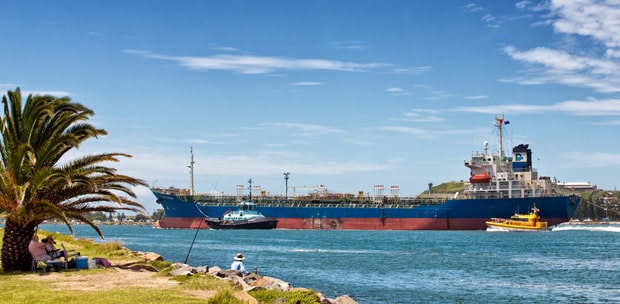Major coal exporter Newcastle Ports is moving away from fossil fuels in a clean energy transition.
The incoming Port of Newcastle chairman Professor (Emeritus) Roy Green says the NSW port must urgently diversify its traffic. New cruise terminal and non-coal freight facilities are part of this low carbon transition.
Professor Green has a background working in Australian universities, business and government. He is former Dean of the University of Technology Sydney’s UTS Business School.
Professor Green says the outlook for fossil fuels is also threatening the port’s future. He says as a result it puts the Hunter regional economy at risk. Yet the shift is also a chance to invest in “new sources of growth and innovation”.
Coal accounts for 90 per cent of Newcastle Ports trade. This includes some of the globe’s highest quality coal.
Newcastle clean energy transition unstoppable
According to Professor Green, coal has driven Newcastle’s prosperity for two centuries.

However, he said a viable and competitive container terminal is needed to meet the needs of a lower carbon world.
And this acknowledges a global shift towards renewable energy like solar panel installation and energy storage batteries.
The Port of Newcastle clean energy move has also been welcomed by former chief economist of National Australia Bank Rob Henderson.
It’s good for investors, Mr Henderson told the Guardian. It should subsequently ‘reaffirm’ the rapid transition away from coal.
Diversification is therefore critical, he says. And continued investment in Australian coal is a “losing proposition”.
Thriving port equals strong regional economy
Meanwhile, according to Professor Green it’s impossible to have a thriving port without a thriving regional economy.
He also said the fortunes of Newcastle Ports and the NSW Hunter economy are “inextricably linked”.
A 98-year lease is forcing the port to think ahead and diversify. This means world class port facilities are essential for ongoing growth.
More solar farms and commercial solar power are helping to change energy use worldwide.












































